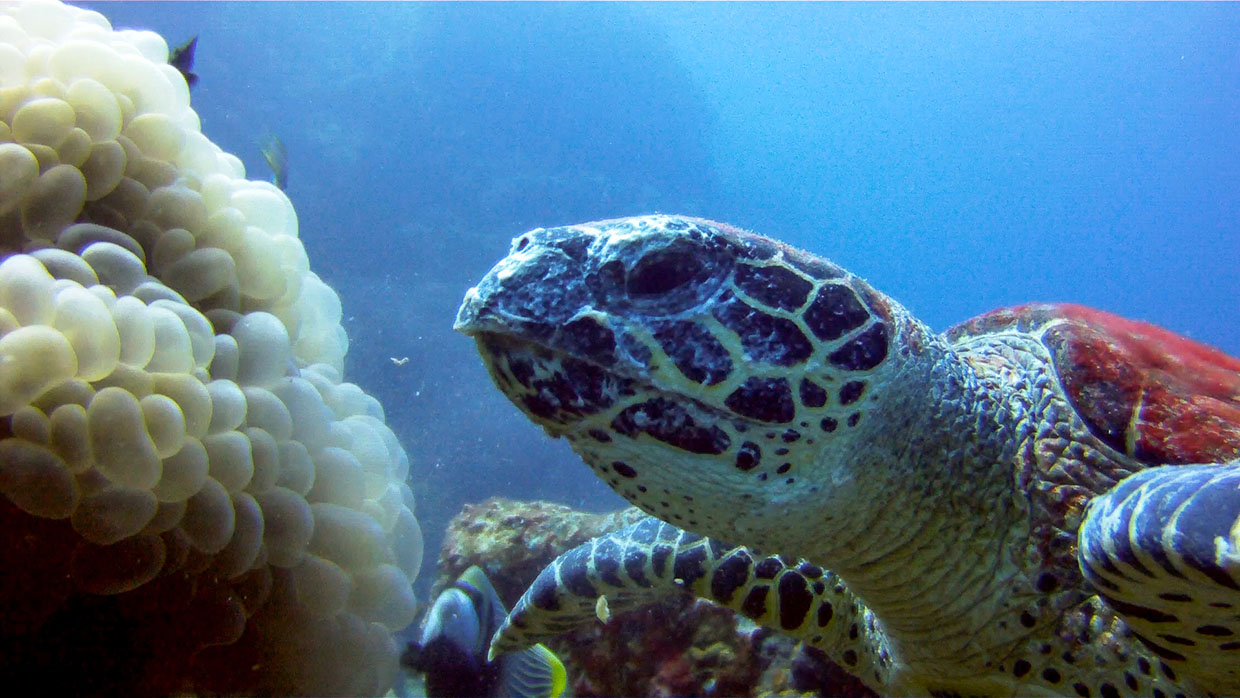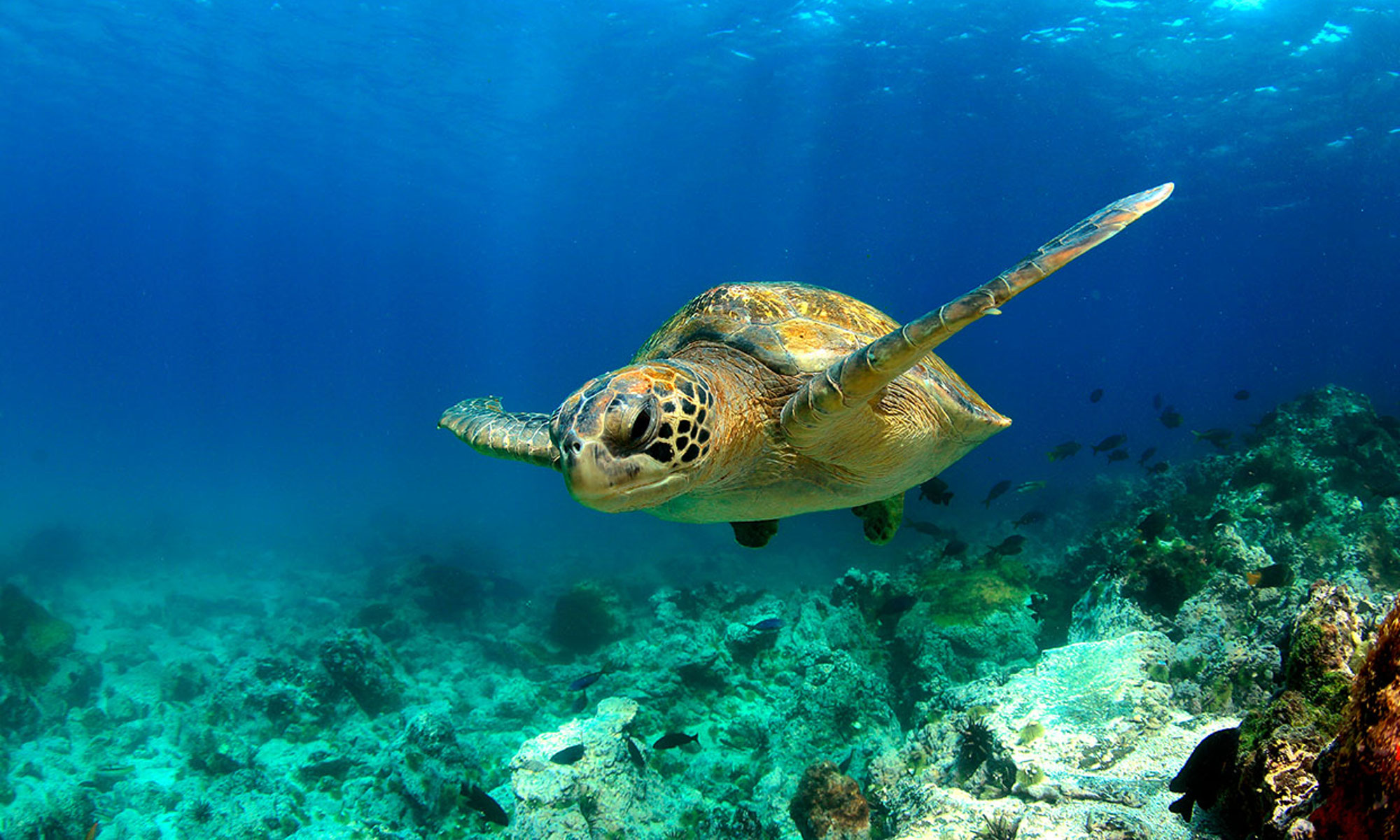Disney partners with UF to save and protect sea turtles.
The world’s seven sea turtle species are classified either as endangered or vulnerable; Walt Disney’s Conservation Fund is partnering with UF to save these creatures. In April, the Disney Conservation Fund announced that UF would be the only university partner in its new initiative, “Reverse the Decline, Increase the Time.” Among the many projects supported by the program is sea turtle conservation, through UF’s renowned Archie Carr Center for Sea Turtle Research (ACCSTR).
Lifelong Gator Archie Carr served as a graduate research professor of zoology at UF, after receiving the university’s first PhD in zoology. A prolific author, Carr received the American Museum of Natural History’s John Burroughs Medal for Nature Writing for his 1956 book, The Windward Road, which raised awareness about the environmental threat facing sea turtles. The book contained his notes on the then-unknown Kemp’s ridley turtle, a species now listed as critically endangered. Carr’s seminal accomplishments in wildlife conservation inspired the creation of ACCSTR, as well as his memorialization in Florida’s Archie Carr National Wildlife Refuge and Costa Rica’s Dr. Archie Carr Wildlife Refuge.
Housed in the College of Liberal Arts and Sciences, ACCSTR uses interdisciplinary, international research to develop conservation projects and guide environmental policy. For example, they helped develop a conservation strategy for the Bahamas, which led to the nation’s 2009 ban on harvesting sea turtles for their meat. Because many of ACCSTR’s research projects involve ocean current mapping, population tracking, and other long-term projects, they benefit from the Disney initiative’s ten-year timeframe.

Hawksbill sea turtles are critically endangered; the worldwide population has declined by 80 percent over the past 20 years.
The ACCSTR team will study the impacts of human activities and climate change on five endangered species of sea turtles that swim through Florida waters and nest on its beaches: the green turtle (endangered), the loggerhead (threatened), the leatherback (endangered), the hawksbill (critically endangered), and the Kemp’s ridley (critically endangered). Changes in ocean circulation and seasonal anomalies cause the seas to be cooler at the time many of these species are coming to nest; the turtles then become cold-stunned, which can lead to death.
The Disney Conservation Fund’s annual grants have provided $40 million to protect over 400 species in 115 countries in its 20 years of existence. The new “Reverse the Decline, Increase the Time” initiative consists of a two-pronged approach to conservation. The first, “Reverse the Decline,” supports five organizations, including UF, working to prevent population decline of ten groups of animals — sea turtles, elephants, butterflies, corals, tamarin monkeys, great apes, sharks and rays, cranes, rhinos, and tigers. The second prong is to “Increase the Time Kids Spend in Nature,” which encourages young people to appreciate wildlife and support its protection.
